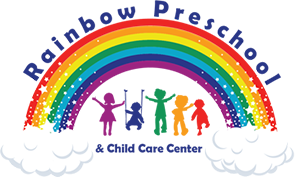
Preschool education philosophy is the foundation of a child’s educational career. Parents must be well-informed about the preschool philosophy of the school they are considering for their child. And there is no one right philosophy for preschool education. However, there are some general approaches that parents should be aware of when considering preschool for their child.
The common education philosophy
Parents are often eager to find the best educational opportunities for their children and may be wondering what philosophy underlies preschool education. There are several different philosophies that can be found in preschools, but the most common are the following:
The play-based or developmental approach emphasizes that children learn through exploration and play. Teachers in a play-based classroom will provide various materials and activities for children to explore, allowing them to learn at their own pace. In this education method, children can learn essential skills like problem-solving and critical thinking.
Academic-based approach – Another common philosophy, the academic-based approach, focuses on teaching basic academic skills such as reading, writing, and math. Teachers in an academic-based classroom will often use worksheets and flashcards to help children learn these skills.
Some parents may prefer a mix of both philosophies, while others may prefer one over the other. Note that both of these philosophies have their benefits and drawbacks. The developmental approach is excellent for helping children learn valuable life skills, but it may not be as effective at teaching academic skills. The academic method is good at teaching academics, but it may not be as good at helping children develop social skills.
Principle-based preschool education philosophy
Throughout history, several educators have provided groundbreaking teaching methods or pedagogies. These are based on their studies on how to capture and instill education in young children effectively. Three of the many notable preschool education philosophies include Montessori, Reggio Emilia, and Waldorf.
For the Waldorf education, children can learn effectively with their hands, mind, and spirit. It is also known for having a technology-free learning environment. In Reggio-Emilia, young children can develop their ways of learning. For Montessori, children can self-direct themselves at their own pace.
Apart from these are also preschool education philosophies based on religion and cultural beliefs.
Which is the best preschool education to choose?
So what should you look for when choosing a preschool? It depends on what you hope your child will get from an educational approach. If you want your child to learn life skills, you should look for a school with a developmental approach. If your aim is to let your child start learning academics early, you should look for a school with an academic approach.

Another note about choosing preschool education philosophy is the curriculum: teacher-directed or child-centered. In a teacher-directed classroom, the teacher is in charge and sets the curriculum. The focus is on academic skills such as letter recognition and counting. In a child-centered classroom, the focus is on the child’s interests and needs. The curriculum is more flexible, and children have more opportunities to explore and learn through play.
Some parents may prefer a teacher-directed technique because it provides more structure and allows them to feel confident that their child is learning essential skills. Other parents may choose a child-centered approach because it will enable their children to learn at their own pace and develop their interests.
Above all, consider your child’s individual needs and preferences when you choose a preschool education philosophy.

Recent Comments